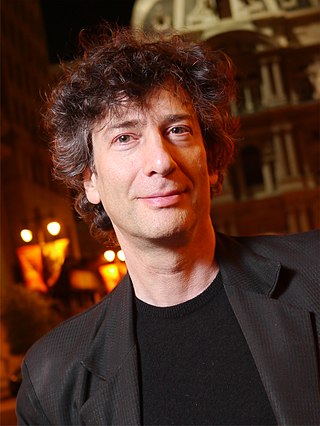
Neil Richard MacKinnon Gaiman is an English author of short fiction, novels, comic books, audio theatre, and screenplays. His works include the comic series The Sandman (1989–1996) and the novels Good Omens (1990), Stardust (1999), American Gods (2001), Coraline (2002), Anansi Boys (2005), The Graveyard Book (2008) and The Ocean at the End of the Lane (2013). He co-created the TV adaptations of Good Omens and The Sandman.

Cat's Cradle is a satirical postmodern novel, with science fiction elements, by American writer Kurt Vonnegut. Vonnegut's fourth novel, it was first published on March 18, 1963, exploring and satirizing issues of science, technology, the purpose of religion, and the arms race, often through the use of morbid humor.

"A Boy Named Sue" is a song written by Shel Silverstein and made famous by Johnny Cash. Cash recorded the song live in concert on February 24, 1969, at California's San Quentin State Prison for his At San Quentin album. Cash also performed the song in December 1969 at Madison Square Garden. The live San Quentin version of the song became Cash's biggest hit on the Billboard Hot 100 chart and his only top ten single there, spending three weeks at No. 2 in 1969, held out of the top spot by "Honky Tonk Women" by The Rolling Stones. The track also topped the Billboard Hot Country Songs and Easy Listening charts that same year and was certified Gold on August 14, 1969, by the RIAA.
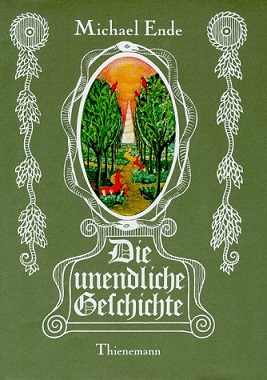
The Neverending Story is a fantasy novel by German writer Michael Ende, published in 1979. The first English translation, by Ralph Manheim, was published in 1983. It was later adapted into a film series and a television series, The NeverEnding Story: The Animated Adventures of Bastion Balthazar Bux.
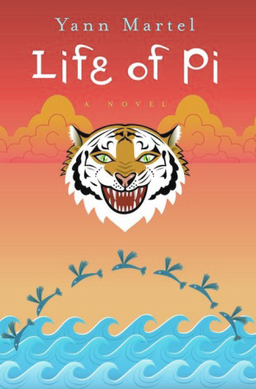
Life of Pi is a Canadian philosophical novel by Yann Martel published in 2001. The protagonist is Piscine Molitor "Pi" Patel, an Indian boy from Pondicherry, India, who explores issues of spirituality and metaphysics from an early age. After a shipwreck, he survives 227 days while stranded on a lifeboat in the Pacific Ocean with a Bengal tiger peculiarly named Richard Parker and an orangutan named Orange Juice along with several other zoo animals, raising questions about the nature of reality and how it is perceived and told.

Roderick Doyle is an Irish novelist, dramatist and screenwriter. He is the author of eleven novels for adults, eight books for children, seven plays and screenplays, and dozens of short stories. Several of his books have been made into films, beginning with The Commitments in 1991. Doyle's work is set primarily in Ireland, especially working-class Dublin, and is notable for its heavy use of dialogue written in slang and Irish English dialect. Doyle was awarded the Booker Prize in 1993 for his novel Paddy Clarke Ha Ha Ha.
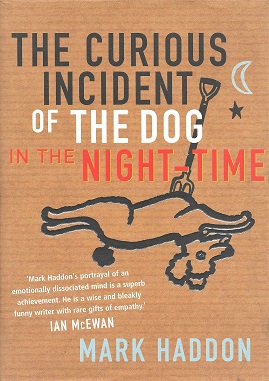
The Curious Incident of the Dog in the Night-Time is a 2003 mystery novel by British writer Mark Haddon. Its title refers to an observation by the fictional detective Sherlock Holmes in the 1892 short story "The Adventure of Silver Blaze". Haddon and The Curious Incident won the Whitbread Book Awards for Best Novel and Book of the Year, the Commonwealth Writers' Prize for Best First Book, and the Guardian Children's Fiction Prize. Unusually, it was published simultaneously in separate editions for adults and children.

David Phillip Vetter was an American boy with severe combined immunodeficiency (SCID), a hereditary disease which dramatically weakens the immune system. Individuals born with SCID are abnormally susceptible to infections, and exposure to typically innocuous pathogens can be fatal. Vetter was referred to as "David, the bubble boy" by the media, as a reference to the complex containment system used as part of the management of his SCID. Vetter's surname was not revealed to the general public until 10 years after his death in order to preserve his family's privacy.

John McGahern was an Irish writer and novelist.

True History of the Kelly Gang is a novel by Australian writer Peter Carey, based loosely on the history of the Kelly Gang. It was first published in Brisbane by the University of Queensland Press in 2000. It won the 2001 Booker Prize and the Commonwealth Writers Prize in the same year. Despite its title, the book is fiction and a variation on the Ned Kelly story.

Hanif Kureishi is a British Pakistani playwright, screenwriter, filmmaker, and novelist. He is known for his film My Beautiful Laundrette and novel The Buddha of Suburbia.
Patrick McCabe is an Irish writer. Known for his mostly dark and violent novels set in contemporary—often small-town—Ireland, McCabe has been twice shortlisted for the Booker Prize, for The Butcher Boy (1992) and Breakfast on Pluto (1998), both of which have been made into films.

Colm Tóibín is an Irish novelist, short story writer, essayist, journalist, critic, playwright and poet.
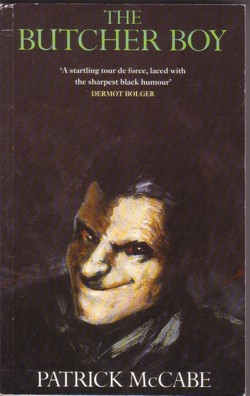
The Butcher Boy is a 1992 novel by Patrick McCabe.
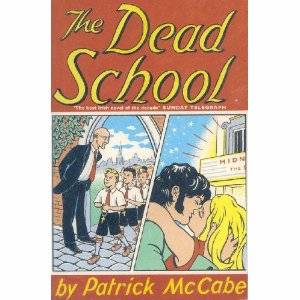
The Dead School is a 1995 novel by Irish writer Patrick McCabe.

The Boy in the Striped Pyjamas is a 2006 historical fiction novel by Irish novelist John Boyne. The plot concerns a German boy named Bruno whose father is the commandant of Auschwitz and Bruno's friendship with a Jewish detainee named Shmuel. As of 2022, the book has sold over 11 million copies worldwide.
"The Maid and the Palmer" is an English language medieval murder ballad with supernatural/religious overtones. Because of its dark lyrics, the song was often avoided by folk singers. Considered by scholars to be a "debased" version of a work more completely known in European sources as the Ballad of the Magdalene, the ballad was believed lost in the oral tradition in the British Isles from the time of Sir Walter Scott, who noted a fragment of it having heard it sung in the early years of the nineteenth century, until it was discovered in the repertoire of a living Irish singer, John Reilly, from whom it was collected in the 1960s, although subsequently other versions have surfaced from Ireland from the 1950s to the 1970s; an additional full text, collected and notated in around 1818, was also recently published in Emily Lyle's 1994 Scottish Ballads under the title "The Maid of Coldingham", having remained in manuscript form in the intervening time. Based on a tape of Reilly's performance provided by the collector Tom Munnelly, the singer Christy Moore popularised the song under its alternate title "The Well Below the Valley" with the Irish folk band Planxty and later solo performances/recordings, this song providing the title of that group's second album released in 1973; the song has subsequently been recorded by a number of more recent "folk revival" acts.

The Road is a 2006 post-apocalyptic novel by American writer Cormac McCarthy. The book details the grueling journey of a father and his young son over several months across a landscape blasted by an unspecified cataclysm that has destroyed industrial civilization and nearly all life. The novel was awarded the 2007 Pulitzer Prize for Fiction and the James Tait Black Memorial Prize for Fiction in 2006. The book was adapted into a film of the same name in 2009, directed by John Hillcoat.

Breakfast on Pluto is a 2005 comedy-drama film written and directed by Neil Jordan. It is based on the 1998 novel of the same name, written by Patrick McCabe, as adapted by Jordan and McCabe. The film stars Cillian Murphy as a transgender woman foundling searching for love and for her long-lost mother, in small town Ireland and London in the 1970s.

The Butcher Boy is a 1997 Irish black comedy film directed by Neil Jordan. The film was based on Patrick McCabe’s 1992 novel of the same name and McCabe co-wrote the screenplay with Jordan.


















